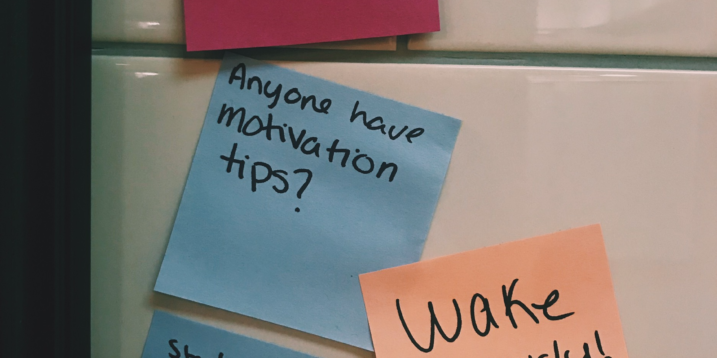By Lexey Burns
Midterm season is a time of stress, breakouts, breakdowns and more stress. In the overbearing sea of studying, exams, projects, trying to keep a social life and eat a decent meal once in a while – many just give up and accept defeat. In this time of desperation, people are seeking reasons and ways to stay motivated.
Everyone has their own self-motivating tips and tricks that they use in times of trouble and here are some of them.
Grab some friends and hit the books:
Don’t study alone! Get together with some of your friends and work together. They don’t have to be in the same program as you, as long as they have projects to work on or studying to do. There are many spots on and off campus where you can go to do some good group studying.
Insider tip: Check out the Brenda Wallace Reading Room (to catch up on class readings, or some much needed Z’s).
Stay organized:
Do you have a plan? Keeping a planner is a great way to keep track of all the things you have to do! As the always-great Phoebe Buffay once said “I don’t even have a PLA-” so make one! Who doesn’t enjoy checking off something off their to-do list? It’s incredibly satisfying and you can feel a sense of accomplishment. Put your assignments and study tasks in order of what due date is closest and write down what you need to get done first. You can keep track of what needs to be done first, and you won’t forget (or procrastinate) to do your less-than-exciting assignments.
Time management is an important skill that students often struggle with. Students often find themselves cramming the night before or finishing and handing in assignments just minutes before the drop box due date. To prevent the stress of last-minute studying or work, try doing a little bit every day. Set aside an hour or so about a week in advance to get it done so you’re not worrying last minute.
Take care of yourself:
Have a break (and maybe a Kit Kat if you were lucky to get your hands on some discounted Halloween candy)! There have been studies that show it is beneficial that you take a short five to fifteen-minute break for every hour of studying or thirty minutes for every two to four hours depending on the task that you are doing. During these breaks, you can go for a short walk, make a snack, do a quick stretch, gently exercise, meditate or have a quick nap. A fifteen-minute power nap is more refreshing and beneficial that a three-hour nap, so make sure you set your alarm.
Speaking of setting an alarm, try waking up earlier! The early bird gets the worm and waking up earlier allows you to have time to do other beneficial activities, like have a shower and make yourself a good breakfast. This puts you in a good mindset for a day of work. Also, if you wake up earlier, it is easier to have a more productive day and you will be able to fall asleep earlier and sleep better the following night.
Getting enough sleep is key to living a healthy and happy life. Some side effects of being sleep deprived are: irritability, depressed mood, inability to learn new concepts and forgetfulness. Getting at least eight hours of sleep helps your immune system (so you can tackle those back to school colds), helps you think more clearly and helps you stay at a healthy weight. If you woke up on the wrong side of the bed, go back to bed for a bit and then try again!
“Sometimes we’re tested. Not to show our weaknesses but to discover our strengths.”
Whoever said this remains anonymous, yet this proves how in the midst of our biggest struggles, we are able to stretch our capabilities to see how much we can really accomplish. Midterm season is full of struggles, but in this time, it is necessary to buckle down and finish what you started. You are not overwhelmed, but determined to achieve your goals and I have full faith that you can do so. Best of luck!
